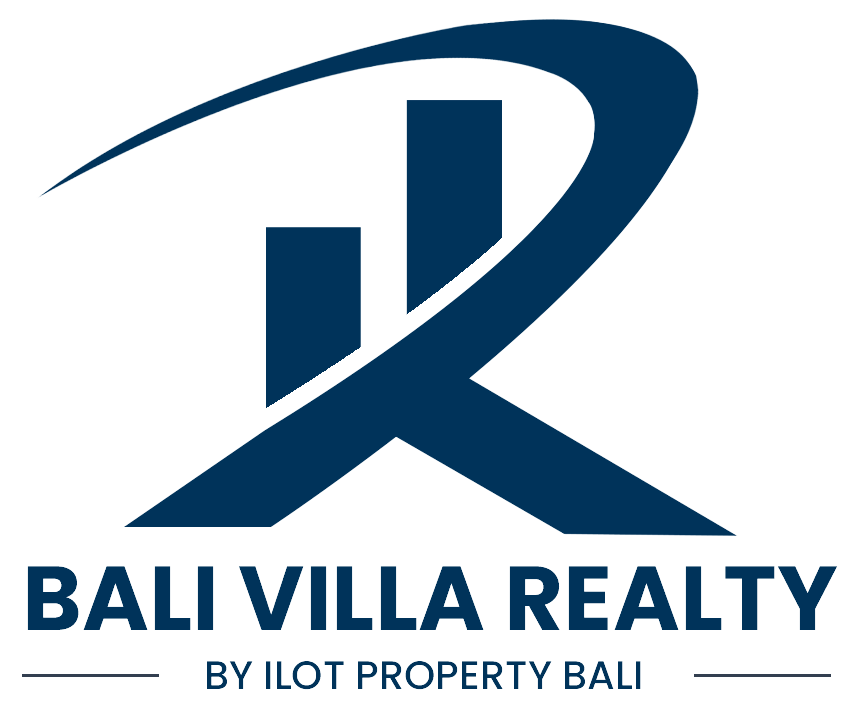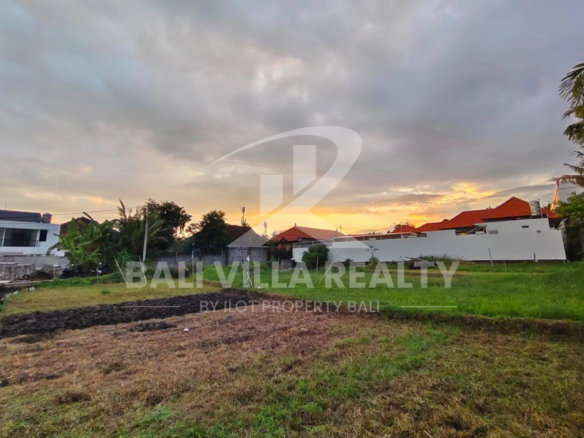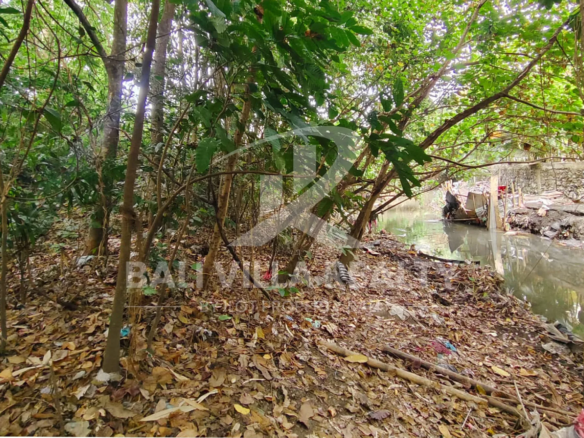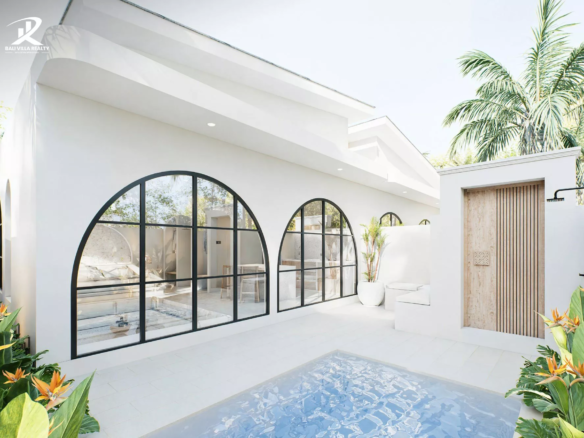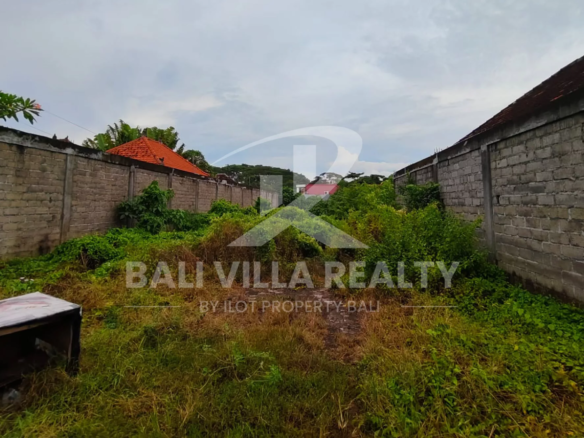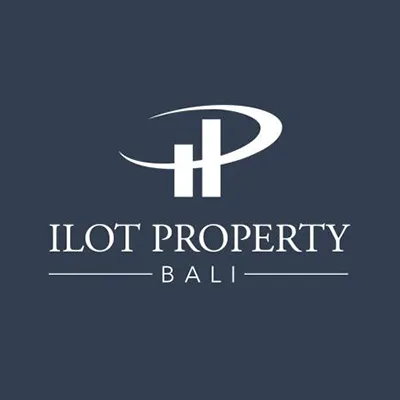Understanding Bali real estate terminology is important when buying or investing in property. This glossary covers essential terminology you need to know. It will help you work through the Bali real estate market.
Glossary Categories
Real Estate Basics
- Amenities — Features of a property that add comfort or convenience, like a pool or gym.
- Bare Shell — A property space with no finishing, ready for customization.
- Built-up Area — The total built-up space of a property, including all floors.
- Buyer’s Agent — A real estate professional who represents a buyer in a transaction.
- Buyer’s Market/Seller’s Market — A market condition where buyers or sellers have an advantage.
- Developer — A person or company that builds and develops property for sale or rent.
- Freehold Property — Property ownership that is permanent and does not have a time limit.
- Gross External Area (GEA) — The total area of a property, including all enclosed and open spaces.
- Income Property — A property bought to make money, usually by renting it out.
- Investment Property — A property bought to earn money through rent or resale.
- Leasehold Property — Property where the right to use the land is leased rather than owned.
- Listing Agent — A real estate agent who represents the seller in a property transaction.
- Multi-Family Properties — Buildings with more than one housing unit, like apartments or duplexes.
- Off Plan — Refers to purchasing a property before it has been constructed or completed, often based on architectural plans and designs. Explore our available Off Plan Villas for purchase.
- Perumahan (Housing Complex) — A planned residential area developed for housing multiple families, often with shared amenities.
- Planning Area — An area designated for specific types of development, like residential or commercial.
- Real Estate Agent — A licensed professional who helps buy or sell real estate.
- Seller’s Agent — A real estate agent who represents the seller in a transaction.
- Sewa Villa (Villa Rental) — A term frequently used in Bali, where villa rentals can be short-term (for tourism) or long-term (for expatriates or investors).
- Single-Family Homes — Homes designed for one family, not shared with others.
- Square Footage — The measurement of a property’s size, often used for pricing and building.
- Survey — A detailed drawing or map that shows a property’s boundaries and features.
- Tanah Kavling (Plot Land) — Land that has been subdivided into plots for development or investment purposes.
Appraisal and Valuation Terms
- Appraisal — An assessment of a property’s value by an expert.
- Appreciation — The increase in a property’s value over time.
- Assessed Value — The value of a property set by the local government for tax purposes.
- Comparable Sales — Recently sold properties used to help determine the value of a similar property.
- Days on Market (DOM) — The number of days a property stays on the market before being sold.
- Fair Market Value — The estimated price a property would sell for in a fair and open market.
- Market Value — The current value of a property in the open market.
- Valuation — The process of determining a property’s worth.
Financial Terms
- Adjustable-Rate Mortgage (ARM) — A mortgage with an interest rate that changes at set times.
- Balloon Mortgage — A mortgage where small payments are made at first, with a large payment at the end.
- Bridge Loan — A short-term loan used until permanent financing is available.
- Closing Costs — The total expenses that come with closing a real estate transaction.
- Commission — The fee paid to a real estate agent for helping sell or buy property.
- Construction Loan — A loan used to finance the construction of a new building.
- Down Payment — The amount of money a buyer pays upfront when buying a property.
- Earnest Money — A deposit showing the buyer’s serious intent to purchase a property.
- Fixed Rate Mortgage — A mortgage with an interest rate that stays the same throughout the loan term.
- Fully Amortized Mortgage — A mortgage where payments fully cover the interest and principal over the loan term.
- Hard Money Loan — A loan that is backed by property but is more expensive and shorter-term than traditional loans.
- Kredit Pemilikan Rumah (KPR – Home Ownership Loan) — A mortgage loan product offered by banks in Indonesia to help individuals buy homes.
- Liabilities — Debts or financial obligations that a person or business owes.
- Liquid Asset — An asset that can be quickly converted into cash, like a savings account.
- Loan-to-Value (LTV) Ratio — A percentage showing how much of a property’s value is financed with a loan.
- Mortgage — A loan used to buy a home, where the property serves as collateral.
- Mortgage Lender — A person or institution that provides money to buy property.
- Mortgage Rate — The interest rate charged on a mortgage loan.
- Nilai Jual Objek Pajak (NJOP – Taxable Sale Value of Property) — The official taxable value of a property, determined by the local government. It is used to calculate property taxes.
- Nomor Pokok Wajib Pajak (NPWP – Tax Identification Number) — A tax identification number for individuals or entities in Indonesia. It is needed for tax-related activities, including property transactions.
- Owner Financing — When the seller provides financing to the buyer instead of using a traditional lender.
- Pajak Bumi dan Bangunan (PBB – Land and Building Tax) — A tax levied on land and buildings, payable annually by property owners in Indonesia.
- Pre-Approval — A lender’s initial review that approves a buyer for a specific loan amount.
- Pre-Qualification — An estimate of how much a buyer can afford to spend on a home.
- Proof of Funds — A document showing a buyer has enough money to complete a property purchase.
- Return on Investment (ROI) — A measure used to evaluate the profitability of an investment, calculated by dividing the net profit by the initial cost and expressed as a percentage. Learn more about the ROI of Bali villa investment.
- Second Mortgage — A loan taken out on a property that already has a first mortgage.
- Secured Loan — A loan that is backed by collateral, like a house or car.
- Unsecured Loan — A loan that does not require collateral, like a personal loan.
Legal and Contractual Terms
- Agreement to Sell — A document where the seller agrees to sell a property to a buyer under agreed terms.
- Akta Jual Beli (AJB – Deed of Sale and Purchase) — A legal document for transferring property ownership from seller to buyer in Indonesia. It is prepared by a Land Deed Official (PPAT).
- Building Byelaws — Rules set by a local authority that govern construction in an area.
- Chain of Title — A record of all previous owners of a property.
- Clear Title — Ownership of a property that is free from any legal disputes.
- Community Property — A type of property ownership where a married couple equally owns all assets acquired during the marriage.
- Contingencies — Conditions in a real estate contract that must be met for the deal to go through.
- Deed — A legal document showing who owns a property.
- Easement — A legal right to use someone else’s land for a specific purpose.
- Eminent Domain — The government’s power to take private property for public use, with compensation to the owner.
- Encroachment — When a structure illegally extends onto a neighbor’s land.
- Encumbrance — A claim or liability attached to a property, like a mortgage or easement.
- Hak Guna Bangunan (HGB – Building Use Right) — A title that allows the holder to build and use a structure on a piece of land owned by the state or another party for a specified period, typically 30 years.
- Hak Milik (Freehold Title) — The highest form of land ownership in Indonesia, where the owner has complete rights over the property.
- Hak Pakai (Right to Use) — A title that allows the holder to use and utilize land owned by the state or another party for a specific purpose and period, often up to 25 years, with the possibility of extension.
- Hak Sewa (Lease Right) — A legal right allowing someone to rent and use land or property for a set period. The landowner keeps ownership, and the renter can use it during the lease.
- Izin Mendirikan Bangunan (IMB – Building Permit) — A permit required before constructing, modifying, or renovating a building in Indonesia.
- Kartu Izin Tinggal Terbatas (KITAS – Temporary Stay Permit) — A temporary stay permit for foreigners in Indonesia. It is required for work, investment, or long-term residence.
- Nominee Agreement — A contract where an Indonesian citizen holds property on behalf of a foreigner. It explains the responsibilities and the rights of each party.
- Notaris (Notary) — A legal professional in Indonesia who handles property transactions, deeds, and other legal documents, ensuring their validity and proper execution.
- Occupancy Certificate — A document proving that a new building meets local requirements and can be used.
- Pejabat Pembuat Akta Tanah (PPAT – Land Deed Official) — A government-authorized official responsible for certifying land transactions and issuing land deeds.
- Pemutihan Sertifikat (Certificate Rectification) — A process of rectifying or upgrading land certificates, which is crucial for ensuring proper ownership documentation in Bali.
- Pondok Wisata License — A permit required to legally rent out a property in Bali for short-term stays, such as villas or guesthouses. It allows property owners to operate small-scale accommodations commercially. Learn more about Pondok Wisata License.
- Purchase Agreement — A contract where the buyer agrees to buy, and the seller agrees to sell, under specific terms.
- Quitclaim Deed — A deed that transfers property without guaranteeing clear ownership.
- Sanction Plan — A plan that gets official approval, often for construction or development.
- Sertifikat Hak Milik (SHM – Certificate of Freehold Ownership) — A legal document certifying that a person or entity has freehold ownership of a piece of land in Indonesia.
- Settlement — The final stage of a property sale, where the ownership is transferred.
- Tanah Adat (Customary Land) — Land governed by traditional or customary laws, often found in rural or indigenous communities in Indonesia.
- Title — A legal document showing who owns a property.
- Title Insurance — Insurance that protects against losses from disputes over property ownership.
- Title Search — A search of public records to confirm who owns a property and if there are any claims on it.
- Zoning Regulations — Local government laws that dictate land use, building heights, and the types of activities allowed in specific areas, which are crucial for property development in Bali.
Organizations and Associations
- Asosiasi Real Estate Broker Indonesia (AREBI) — The Indonesian Association of Real Estate Brokers, which sets ethical standards and provides support for real estate brokers in Indonesia.
- Badan Pertanahan Nasional (BPN – National Land Agency) — The government agency responsible for land registration, certificates, and land-related disputes in Indonesia.
- Banjar — A traditional community or neighborhood council in Bali that manages local social and cultural matters, often playing a role in property-related community agreements and approvals.
- Kementerian Agraria dan Tata Ruang (ATR) — The government body responsible for land use regulations and spatial planning in Indonesia.
- PT Penanaman Modal Asing (PT PMA – Foreign-Owned Company) — A foreign-owned company structure in Indonesia, often used by foreigners to invest in or manage property in compliance with local regulations. Learn more about PT PMA.
- Real Estat Indonesia (REI) — An association that represents property developers and real estate professionals across Indonesia.
Conclusion
We hope this glossary of Bali real estate terminology helps you better understand local property terms and navigate the market with confidence.
Curious about property opportunities or just have a question? Our team at Bali Villa Realty by Ilot is happy to chat and share insights—free and with no obligation. Contact us here.
